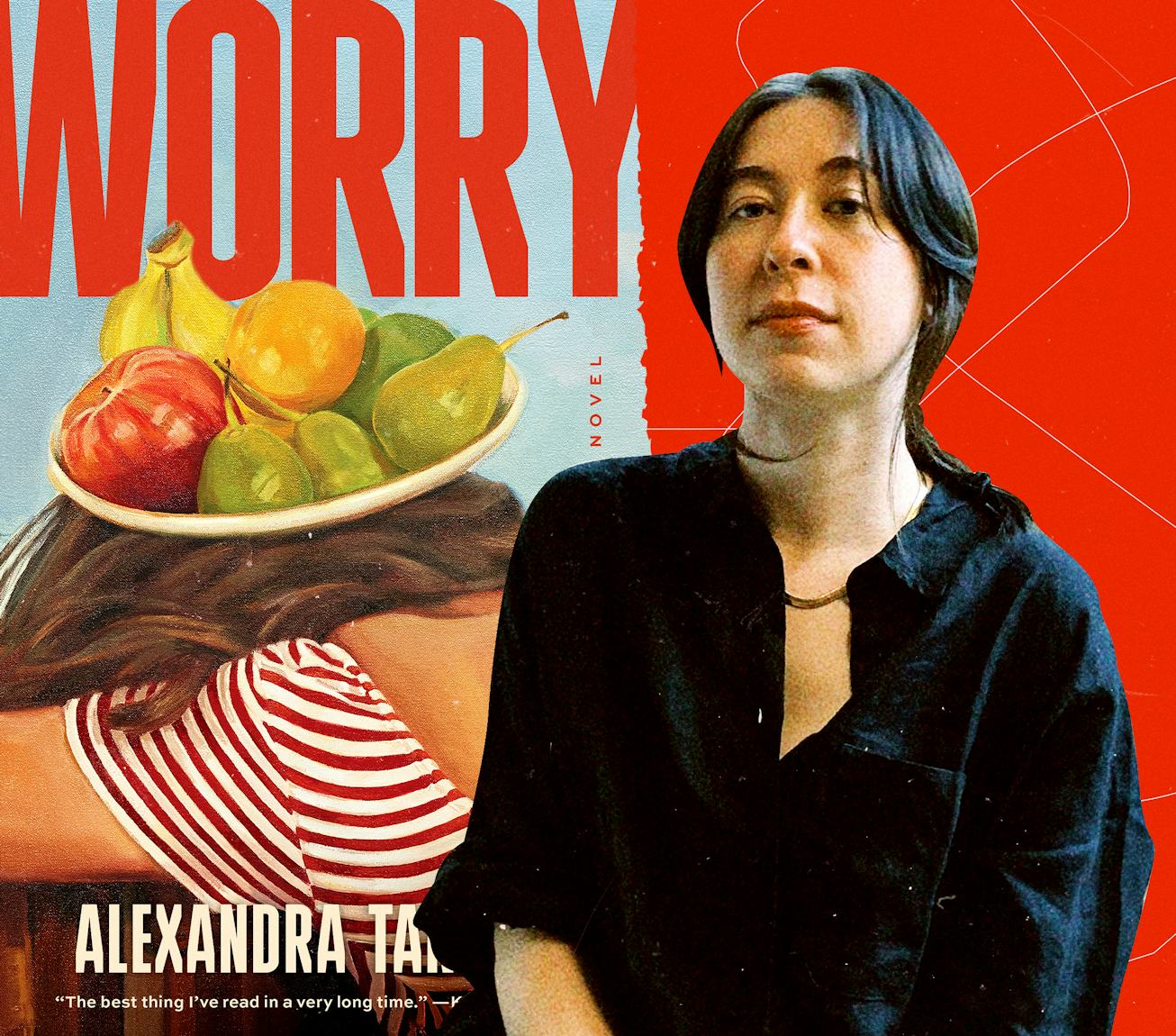
Culture
Everyone You Know Will Be Reading Worry This Spring
The author discusses her dread-filled debut novel with NYLON.
Alexandra Tanner is in a near-constant state of worry. As we sip on mezcal cocktails in a Crown Heights watering hole decorated in golden tinsel, the writer tells me her current cure is watching documentaries about space with her partner. “I'm literally looking to other planets for comfort,” she laughs. Her main source of unease right now? Worry, her debut novel out March 26.
I understand the dread, but I also know that owning an advanced reader’s copy of Worry has become a bit of a status symbol among the well-read. I’ve seen posts of the novel — and its portrait-like cover of a forlorn brunette with a bowl of ripe fruit draped atop her head — peeking out of purses, or delicately placed next to an assortment of beverages (I even participated, snapping a photo of the book resting in my suitcase next to my chihuahua). It’s the type of organic attention of which a debut novelist can only dream.
It’s easy — and reductive — to call Worry an “internet novel.” The protagonist Jules works at a buzzy astrology startup where she writes concise, somewhat alarmist horoscopes. She operates a burner Instagram solely to check on mommy influencers who have gone rogue and are convinced the deep state is out to get them (her own mother included), which Tanner says is inspired by “people who thought Oreo cookies had a satanic message on them” coming across her own Explore page. There’s also a lovably naughty rescue dog, named Amy Klobuchar, as a running gag. But at its core, Worry is a novel about sisters and the love they share despite being given access to each other’s emotional nuclear codes.
Jules is often moved to tears at the thought of her younger sister Poppy — headstrong, prone to full-body hives, fresh off a suicide attempt, and her new roommate in Brooklyn — as a defenseless child. But that’s either right before or directly after Jules says something cutting, knowing she can get away with it because they’re blood. “There's that sense that we can show each other our worst parts and we'll still be there at the end of the day,” says Tanner. “I think there's something freeing and also scary in that you have to live with what you'll say and do to someone who's always going to be there for you.”
Tanner set out to write a funny novel — and she succeeded. Worry is exacting and hilarious, similar to the startling, familiar shock of seeing your own slightly warped face reflected back to you when your iPhone dies from hours of scrolling. It’s a novel that feels both like an anthropological time capsule of turn-of-the-decade culture and a prescient crystal ball of our current, utterly droll hell. But for Tanner, it’s less about being in the know and more about precision.
“I never feel like I had my finger on the pulse of anything, but I think I just had that desire to render something really carefully and really accurately as close to what I was seeing as possible,” she says as we order another round. “Maybe the zeitgeist is just being able to look at a moment, look at a trend, and describe it for what it is.”